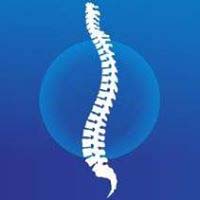Inter-Examiner Reliability of Leg Length Inequality Assessments
Mitzi Schwartzbauer DC Bio & John Hart DC, MHSc Bio
Annals of Vertebral Subluxation Research ~ July 11, 2011 ~ Pages 51-56
Abstract
Introduction: Chiropractic leg length inequality (LLI) tests are used as a method of assessing, among other clinical aspects, the presence of some type of neurological disturbance thought to be related to vertebral subluxation. This study assesses inter-examiner reliability of four LLI procedures and hip extension procedure.
Methods: Two blinded examiners assessed the same 30 participants once for the five procedures. The kappa statistic was applied to determine the level of agreement. A kappa score of 0.40 or greater was considered as acceptable agreement.
Results: The prone hip/leg extension test exhibited a kappa score of 0.482 while the other LLI procedures showed kappa scores < 0.20.
Conclusion: In this study, only the prone hip/leg extension assessment revealed acceptable repeatability. Further research is warranted to verify these findings.
Keywords: Leg length inequality, chiropractic, inter-examiner reliability







